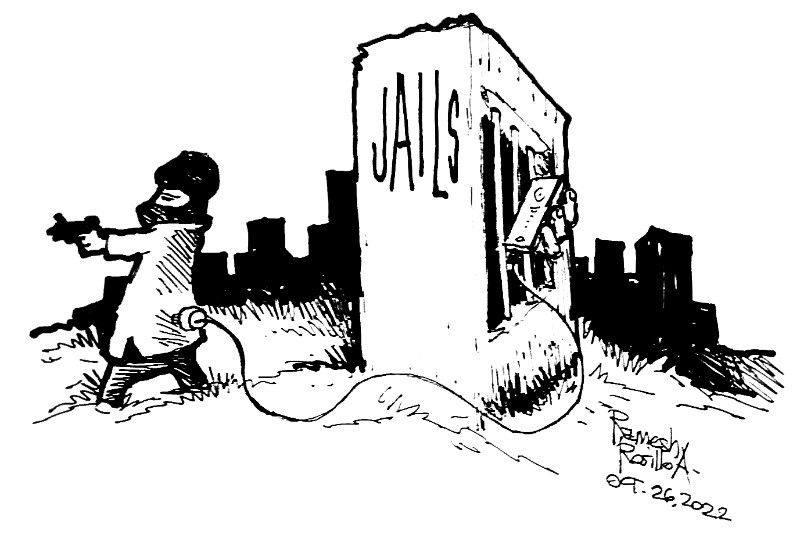EDITORIAL - Issues with the prisons

Not so long ago we wrote about how many of our prisons are not really places for detainees to become rehabilitated and return to society as better citizens, but places of “higher education” where they actually become better criminals. These are places where they establish contacts, build networks and, for others, even run their criminal empire or just engage in crime in comfort and safety.
The latest development in the Percival Mabasa murder case shows that this is still the case. If Joel Escorial, the alleged gunman in the murder is to be believed, the hit was arranged by a middleman in the New Bilibid Prison, Jun Villamor.
Villamor has since died, leaving more questions than answers.
However, according to a woman who claimed to be Villamor’s sister, he was still able to text her before he was found dead. Those who have been deprived of liberty are not supposed to have cellphones, but Villamor did.
Although it has not been confirmed, we can assume it was through this same cellphone Villamor communicated with Escorial to carry out the hit on Mabasa.
If Villamor was able to regularly use a cellphone in the jail, how many others in the jail have the same privilege? If Villamor was able to arrange a criminal transaction even as he was detained, how many others in the jail are doing the same? Aside from cellphones, what other contraband items do detainees in Bilibid have --or are allowed to have by jail officials who look the other way?
There is also another issue worth mentioning in this case; the fact that prison records are not as accurate as the authorities expected. Remember that after police asked jail officials to look for the name given to them by Escorial, jail officials said they didn’t have such a name in their records.
It was only after Villamor died that his identity was confirmed.
We hope this is just a case of poor record-keeping, because the other alternative is hard to stomach; that jail officials deliberately made an effort to hide the fact that they had Villamor until he could be silenced.
Not having accurate prison records makes it easy for someone to remain undetected in the jail, or at least “invisible” for some time. This can work either to the favor of the prisoner or the jailer, or both, depending on their arrangement.
Like we said before, unless our authorities clean up our prisons these will continue to be safe havens for criminals and criminal activities.
- Latest
























